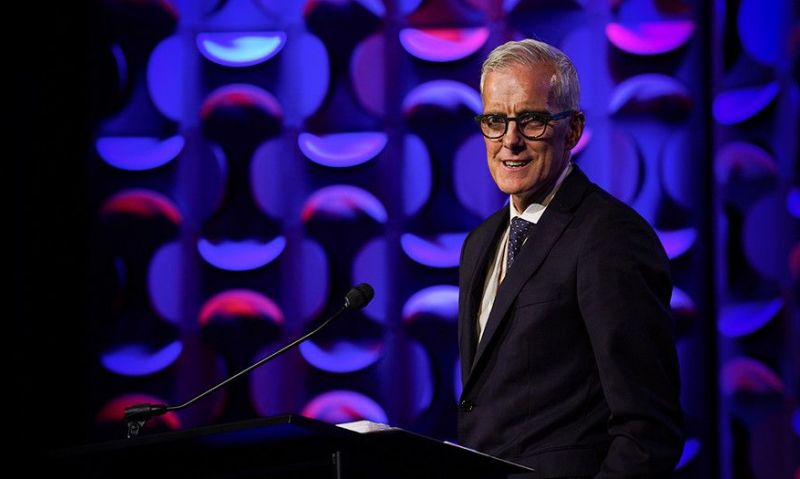
Funding needed before fiscal year ends to prevent disability check delays as enrollment and claims continue to break records.
U.S. Department of Veterans Affairs Secretary Denis McDonough told thousands of veterans Tuesday in New Orleans that record-breaking enrollment and disability claims volume since the PACT Act of 2022 became law has produced the need for likewise record-breaking funding and a bigger budget to keep pace with growing health-care demand.
“We’ve exceeded our most aggressive projections from the beginning of this year,” McDonough said on the opening day of the general session of The American Legion’s 105th National Convention. “And that’s why we’ve now told Congress we need more money – to keep delivering more care and more benefits to more veterans than ever before.”
He said VA urgently needs nearly $3 billion by Sept. 20 “so the Oct. 1 checks aren’t delayed.” About 7 million veterans would be affected if a delay were to occur.
VA enrollment growth – a 34% increase (710,000 veterans) over the last two years – and a continuously climbing number of patient appointments (120 million in 2023 to 127 million this year) also demands that VA request an additional $12 billion for the Veterans Health Administration in the next fiscal year.
“So, we’re working with Congress and the Office of Management and Budget to address these needs and continue delivering care and benefits at record rates,” McDonough explained. “That’s what vets deserve. That’s what matters most.”
In a media session following his remarks onstage, McDonough said the shortages in disability claims funding and the health-care budget for the 2024-25 fiscal year “flow from the fact that we have more veterans filing more claims than ever, and we’re deciding those claims faster than ever, and we have more veterans seeking care than ever.”
Driving enrollment growth is the Sgt. Heath Robinson Honoring Our Promise to Address Comprehensive Toxics Act of 2022, which opened eligibility for VA disability benefits and care to more than 3.5 million veterans, most of whom are post-9/11 generation and did not have conditions that were previously considered service-connected by VA.
The American Legion supported the PACT Act from the beginning, consistently demanding that funding keep up with increased demand to treat veterans suffering from illnesses and diseases caused by exposure to burn pit smoke, atomic radiation and Agent Orange who were previously ineligible for VA disability compensation.
McDonough said he expects the fiscal 2024 shortfall to be resolved in the coming weeks. “We’ve talked to everybody in Congress about this,” he said. “They’re working it now. They come back next week. We’ll hope to see some progress right out of the gate.”
The Secretary told the Legionnaires that “there are still millions of eligible vets and survivors who haven’t filed, for PACT Act or any other service connection. We need your help to encourage vets and their survivors to file, and to file with accredited veteran service officers, like those from the Legion, not with claims sharks. We – the Legion and VA – can’t stop working until every vet, every survivor, receives the benefits and services they’ve earned.”
In the media session, the Secretary said he will continue to push for even more VA enrollment. “I will not stop reaching out to new veterans,” he said. “I just met a veteran, 78 years old, combat vet, 1966 to 1967 in Vietnam. He had never been to VA. Now 100% service connected, has diabetes, heart disease, hypertension – all from his connection to Agent Orange. The PACT Act got him to come get his care at VA. If we weren’t reaching out to new veterans, he today would not be getting the care he’s getting. We are going to continue to add new vets. If that means we have to ask Congress for more money, we’ll do it.”
- Convention

